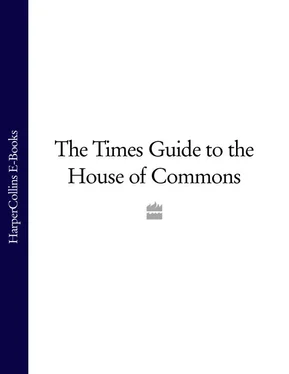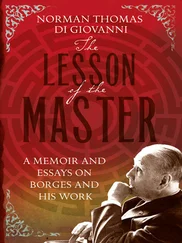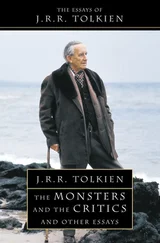Chief Political Correspondent
It was designed as a punishment to fit the crime. Having hustled, exaggerated and bullied at least £1 million out of the expenses system to which they had no right, the eventual response of MPs in the last Parliament was to strip those in the next of the power to administer their own affairs. So MPs who returned to Parliament after the general election found themselves subtly but crucially disenfranchised. Theirs is the first generation of representatives with powers to make the laws of the United Kingdom, but banned from having input into the rules governing their own behaviour.
To its critics, Parliament and its centuries-old sovereignty was, at a stroke, subjugated beneath the control of an unaccountable quango. For those who witnessed repeated pitiful displays of self-interest by a Parliament unable to face up to the outrage caused by its own behaviour, however, there seemed to be no other route. Twice in the last Parliament, in 2008 and 2009, MPs debated changing the rules only to decide to cling on to as many of the perks, privileges and loopholes as they could. And twice they attempted to block or alter freedom of information laws to keep as much information about their claims secret as possible. Instead of agreeing to change, MPs would blame a hostile media and public misunderstanding for their predicament.
They were undoubtedly helped by a culture of compliance among those inside the Commons Department for Resources, affectionately known by its historic name, the Fees Office. These largely anonymous public servants waived through payments, some subsequently blaming bullying by MPs as the reason they signed off the payments. Yet on the rare occasions they were glimpsed in public, the senior figures appeared every bit the accessory in a relationship that had become too cosy. When Andrew Walker, then head of the Department of Resources, appeared publicly at a tribunal in 2008, he argued against greater transparency over MPs’ expenses. His argument was that this would “distract them or lead to additional questions which they have to defend, even if they have (acted) perfectly sensibly, because there is a great desire to look at the private lives of public individuals”.
Only when the full, unredacted publication of every receipt submitted for expenses was published in the summer of 2009 were MPs so cowed that they agreed to change the system for good. And so, at the end of 2009, the Independent Parliamentary Standards Authority (IPSA), arbiter of the conduct of the new generation of MPs, was born. Together with Sir Christopher Kelly, chairman of the Committee on Standards in Public Life, they have drawn up a new, far tougher, regime.
Gone are the days when generous second-home allowances, coupled with rising property prices, combined to mean that a valuable property empire was a near inevitability for any MP beyond London. Also gone are the days when MPs in Zones 3-6 could classify themselves as living out of London, thereby helping themselves to a £20,000-plus second-home allowance. Farewell, too, to the so-called “food” payments, a monthly cheque of £400, no questions asked, no receipts required.
Today’s MPs face a new austerity package of expenses that Sir Ian Kennedy, the chairman of IPSA, admits is a response to the expenses crisis. In effect, the new generation of MPs is paying for the crimes of the last. Many face the prospect of a lonely existence cut off from their families and living in one-bedroom flats in the cheaper districts of London, unless they supplement the cost from their £64,766 salary. Renting is now the only option. Only MPs who were re-elected and already have houses they own can continue claiming for mortgage payments, and then only until August 2012, forcing an earlier-than-expected sale of many homes.
London MPs will be defined as those who live within 20 miles of Westminster or can reach any part of their constituency within 60 minutes by public transport in peak hours, meaning that 128 MPs in this Parliament will be unable to claim for extra accommodation.
Beyond the housing allowance, the clampdown is equally severe. Only MPs with children under the age of 5 will be able to claim an extra travel allowance that takes into account their family circumstances. All MPs must travel in standard rather than first class, although ministers will still be allowed to travel first class under the government expenses scheme. One small concession by IPSA agreed to allow MPs to continue to employ one relative, continuing a long-established parliamentary tradition. This has still prompted howls of protest from some who pointed out that the first indication of the depth of the expenses scandal emerged when Derek Conway, then a Tory MP, was found to be paying his son but was unable to prove that he worked for him.
Yet in spite of the still-evident levels of public scorn at MPs’ handling of their claims, several spent the early days of this new Parliament protesting about the new settlement. Some Members claimed that they were being forced to sack their researchers because of unexpected changes to pensions arrangements for staff. Others complained about over-zealous IPSA staff who would deal with personal queries only in writing by email, then never reply, and require marriage and birth certificates before paying for family travel.
Meanwhile, some MPs were angry that IPSA hired three press officers, some paid more than backbenchers, while demanding that Members pay for expenses such as constituency offices out of their own pocket and claim the money back later. Some MPs reacted so badly to the new rules that they were warned to stop abusing staff or risk legal action. MPs now suffer the humiliation of being greeted with warning signs that read: “Abuse of staff will not be tolerated.”
The new Parliament was unable to draw a clean line under the expenses affair. The first scalp of the session was David Laws, the Lib Dem MP for Yeovil, who was forced to quit as Chief Secretary to the Treasury less than three weeks into the job over £40,000 of rent claims that he paid to his partner, James Lundie. After 2006, payments to family members and partners were banned by the Commons, but Mr Laws demurred from declaring his relationship, kept secret even from his own family, to the parliamentary authorities. Mr Laws’s insistence that privacy rather than profit was behind the move was not enough to justify an apparently straightforward breach of the rules nor prevent his resignation.
It was an early reminder of the toxic consequences of abnormal expenses arrangements, and how the general election had done little to dilute this.
A few words of friendly advice for aspiring MPs
Chris Mullin
Labour MP for Sunderland
South 1987-2010.
Afew days after I was selected, in June 1985, an editorial appeared in the Daily Mail . “Poor Sunderland,” it began, “first its football team is relegated and now comes even worse news…” The Labour leader, Neil Kinnock, was not best pleased either. Not long afterwards, on a visit to the North East, he was overheard asking: “What has gone wrong in Sunderland?” He went on: “First they have an MP who is a boil on the arse of the Labour Party,” a reference to my estimable colleague Bob Clay. “And now they have gone and selected a certifiable lunatic.”
Despite this unpromising beginning, I was elected in 1987 with a swing to Labour more than double the national average. Being a friend of Tony Benn and having played a part in the uprising in the Labour Party in the early 1980s, I did not expect on arrival in Parliament to be carried shoulder high into the Tea Room and I was not disappointed.
At my first meeting of the parliamentary party there was a post-mortem examination on the outcome of the election – we had, after all, by now lost three in a row so it seemed a good idea to see what lessons could be learnt. I got up and made what I thought was a conciliatory little speech, the gist of which was that “we must turn our guns outwards and not shoot at each other”.
Читать дальше












